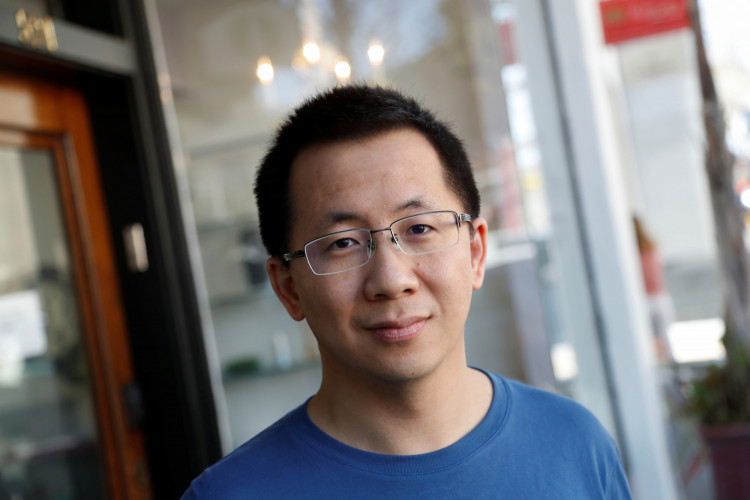Zhang Yiming, founder of ByteDance, has been named China's richest person for the first time, marking a significant shift in the country's billionaire rankings. According to the 2024 Hurun China Rich List, Zhang's fortune has soared to $49.3 billion, driven by the global success of ByteDance's popular platforms like TikTok and Douyin. This surge in wealth propelled Zhang past previous leader Zhong Shanshan, the bottled water magnate behind Nongfu Spring, whose wealth dropped significantly amid public backlash earlier this year.
Zhang's rise to the top reflects the growing dominance of technology and new media in China's wealth landscape, a departure from the real estate-heavy lists of previous years. Rupert Hoogewerf, chairman and chief researcher of Hurun Report, noted that this shift is emblematic of broader economic changes within the country. "The stories of the individuals on the Hurun China Rich List tell the story of the Chinese economy," he said. "The new generation of Chinese entrepreneurs, particularly in the tech space, are more international in outlook than their predecessors."
ByteDance, which owns TikTok and its Chinese equivalent Douyin, reported revenue growth of nearly 30% last year, reaching $110 billion. This growth helped Zhang surpass Zhong Shanshan, whose wealth declined by 24% to $47.9 billion. The decline in Zhong's fortune was largely attributed to a significant drop in Nongfu Spring's market value, following accusations that the company's bottle designs reflected a lack of loyalty to China. The backlash, which began in February, dealt a severe blow to the company's stock and reputation, costing Zhong his position at the top of China's rich list.
Pony Ma, CEO of internet giant Tencent, maintained his third-place ranking despite a 13% increase in his net worth, which now stands at $44.4 billion. Tencent, best known for its social media and gaming platforms, saw a sharp rise in revenue, bolstering Ma's fortune. However, like many of his fellow billionaires, Ma faced challenges as China's economy struggled to recover from the impacts of the COVID-19 pandemic, a real estate crisis, and a turbulent stock market.
This year's Hurun China Rich List saw a notable contraction, with the total number of billionaires dropping by 142 to 753, compared to 2021's high of 1,185. The overall wealth of the individuals on the list fell by 10%, totaling $3 trillion. According to Hoogewerf, this marked the third consecutive year of decline in China's rich list, a result of the country's economic slowdown and stock market difficulties. "The Hurun China Rich List has shrunk for an unprecedented third year running," Hoogewerf stated, emphasizing the tough economic conditions that have persisted in China.
The shifting wealth landscape is further underscored by the fact that only 54 new names were added to this year's list, the lowest number in two decades. Among the notable newcomers were Charlwin Mao and Miranda Qu Fang, co-founders of Xiaohongshu, a social media platform popular among younger Chinese users. This platform, which blends e-commerce with lifestyle content, reflects the growing influence of technology and digital media in shaping China's entrepreneurial success stories.
China's economic challenges, particularly in the aftermath of the pandemic, have hit various sectors hard. The country has been grappling with a real estate crisis and ongoing volatility in its stock markets, leading to a decline in both consumer spending and investor confidence. The government is expected to introduce major stimulus measures aimed at reviving consumption and stabilizing the economy, which has seen weaker-than-expected growth in recent months.
Zhang Yiming's ascent is also symbolic of a new generation of Chinese entrepreneurs who are taking their businesses global. ByteDance's success with TikTok, a platform that boasts over a billion active users worldwide, has been a testament to the international potential of Chinese tech companies. Similarly, Colin Huang, founder of Pinduoduo, ranked fourth on the list, has pushed his e-commerce platform Temu to international markets, although his wealth declined by 9% over the past year.
Despite the economic headwinds, tech entrepreneurs continue to dominate China's wealth rankings, with significant fortunes being built in consumer electronics, e-commerce, and digital platforms. This year, Midea founder He Xiangjian and CATL's CEO Zeng Yuqun rounded out the top five on the list, further highlighting the rise of innovation-driven wealth in China.



